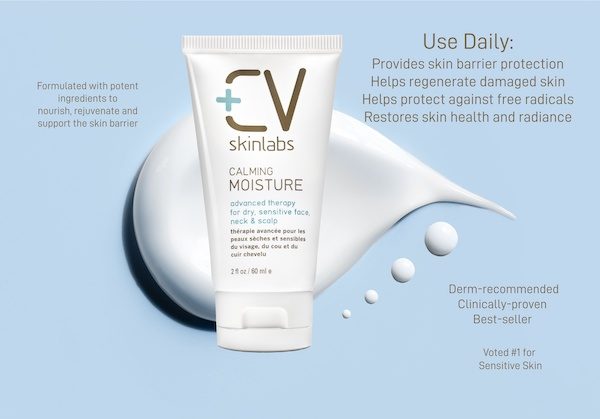
Some of our customers have asked us: Does screen time damage skin?
It’s not something we want to think about. After all, most of us can’t just stop using our phones, tablets, and computers.
Fortunately, that’s not necessary. We do need to be aware, though, of how the light emitted from our screens can affect our skin, and what we can do to protect it.
Does Screen Time Damage Skin? It’s All About Blue Light
Blue light is a part of the visible spectrum of light—the part we can see—that has the shortest wavelength and the highest energy. Though the sun is the biggest source of blue light in our lives, artificial sources include fluorescent lights, LED televisions, computer monitors, smartphones, and tablet screens.
There are some benefits to blue light. It boosts alertness, helps memory and brain function, and elevates mood. It also helps us regulate our natural circadian rhythms so we feel awake in the morning and sleepy at night.
Though some exposure to blue light is healthy, what’s happening today is that we’re all getting too much exposure. We’re staring at our phones, computer screens, and tablets for hours every day, and often at night. Human beings have never been in this situation before, where we’re getting this much blue light shining on our eyes and skin.
Might this be bad for us?

Does Screen Time Damage Skin? The Evidence So Far
You’ve probably heard that blue light emitted from our screens can affect our eyes. Over time, we may suffer from dry, itchy eyes; tired eyes; and general eye strain. Some studies have even found that over time, exposure to blue light may damage the cornea, lens, and retina, resulting in changes to vision as we get older.
Scientists have begun to study the effects of this type of light on the skin now, too. In a recent 2023 study, for instance, researchers reviewed the literature to date on the issue. They found numerous studies that showed being exposed to blue light “accelerates the aging process and produces cutaneous hyperpigmentation.”
These negative consequences, the researchers warned, “may eventually cause more general skin damage, which may hasten the aging process.” The recommended skin protection against blue light.
The problem is that blue light can inspire the formation of free radicals in the skin. These are reactive, unstable molecules that can damage skin cells, leading to the breakdown of collagen and elastin.
In a 2019 study, researchers found an increase in free radical production, DNA damage, and inflammatory markers in skin after exposure to blue light.
We can liken the effects to sun exposure. It’s not something you’re going to notice right away. But over time, the more you expose your skin to blue light, the more damage may accumulate.
Does Screen Time Damage Skin? Hyperpigmentation
Some studies have focused specifically on how blue light leads to dark spots, melasma, and other types of hyperpigmentation.
In 2010, for instance, researchers found that exposing the skin to blue light caused more pigment, redness, and swelling than exposing it to comparable levels of UVA rays. (The sun emits both blue light and UV rays, but blue light penetrates deeper than UV rays.) Though both types of exposure resulted in hyperpigmentation, that produced by blue light was darker and more sustained.
“Dermatologists have good evidence to show that visible light triggers certain skin conditions, such as melasma, where the skin is stimulated to produce more pigment,” Shari Marchbein, a board-certified dermatologist, told Allure magazine. She added that the more time we spend on our devices, the worse off our skin “might” be, though we don’t know for sure yet.
Some dermatologists state that anecdotally, they are seeing more melasma on the side of the face where people hold their phones. This is different than usual, as typically melasma forms on the central cheeks. They also note that dark spots from acne are often worse on the side of the face where people hold the phone.
How Screen Time May Damage Skin
In summary, from what we’ve learned so far, we can say that excess exposure to blue light may:
- Generate free radicals, which can then damage skin cells and degrade collagen and elastin. Effects may include fine lines and wrinkles, sagging, and bagging.
- Stimulate melanin activity in the skin, which leads to uneven and excessive pigmentation. The results may include dark spots, melasma, and more noticeable acne scars.
- Compound the effects of photoaging, which is aging induced by light waves (similar to that experienced after sun exposure). The results include accelerated signs of aging.
- Weaken the outer layer of skin, which can lead to dryness and dullness.
- Disrupt skin healing and regeneration, particularly if you’re exposed to blue light at night. This could accelerate aging over time.

Does Screen Time Damage Skin? What You Can Do
This is a new area of research, so we still don’t know exactly how our devices are affecting our skin. It is safe to say that excessive blue light exposure is probably not good for the skin and that we may benefit from taking some precautions.
Use Blue-Light Blocking Devices
You can now purchase blue-light-blocking screen protectors for all your devices: computers, tablets, and phones. These help cut down on the amount of blue light that reaches your skin and may help reduce your exposure.
Ask About Blue-Light Blocking Glasses
The jury is still out when it comes to how well blue-light-blocking glasses work, but if you spend a lot of time in front of your screens, it’s worth asking your eye doctor about them. They could help protect the skin around your eyes from damaging blue light.
Use Night Mode on Your Devices
If you use your devices after dark, be sure to enable the “night mode” option as it helps reduce the emission of blue light. On most devices, this option uses gentler yellow and orange light instead. Your other option is to reduce your usage of these devices at night. Read a real book as opposed to an ebook, for instance.
Wear a Safe Sunscreen
Remember that the sun is also a source of blue light and dangerous UV rays. Use a safe sunscreen made of zinc oxide or titanium dioxide to protect your skin.
Eat a Healthy Diet with Lots of Fruits and Vegetables
Fruits and vegetables have a lot of antioxidants in them, which you need to fight off those pesky free radicals. Make sure you’re getting at least five servings a day for your best skin health!
Invest in Quality Skin Care
Quality skin care is key when it comes to helping your skin defend itself against the effects of blue light, pollution, and other daily aggressors. When your skin has the nutrients it needs and is well moisturized, it can better fend off dangerous free radicals.
Consider looking for skincare that is rich in antioxidants, as that can also help squelch the damaging effects of free radicals. Our CV Skinlabs products are full of powerful antioxidants, including Reishi mushroom, turmeric, and vitamin E, to help protect the skin while encouraging repair and regeneration.
Have you noticed any negative effects of screen time on your skin?
Featured image by Andrea Piacquadio via Pexels.


